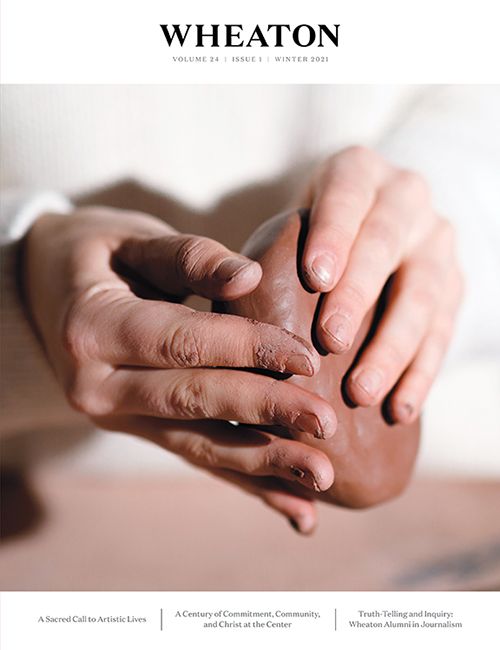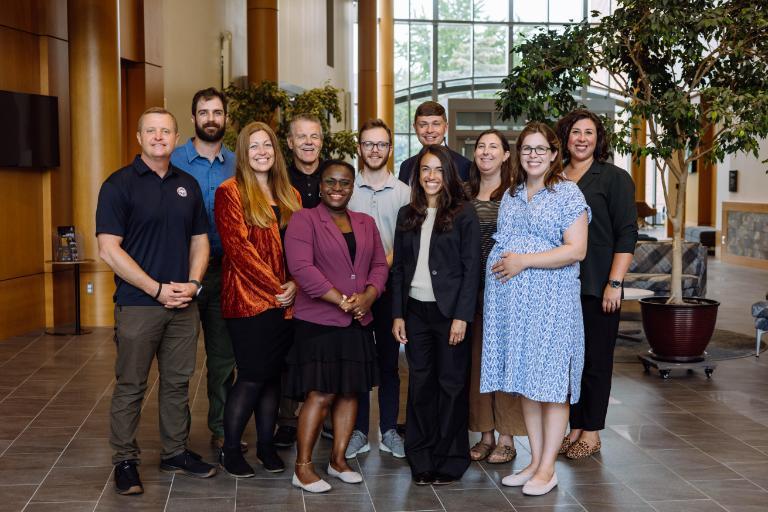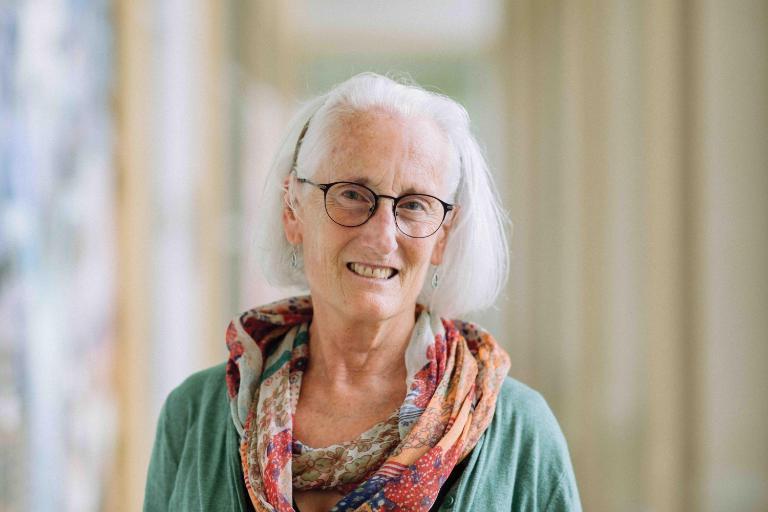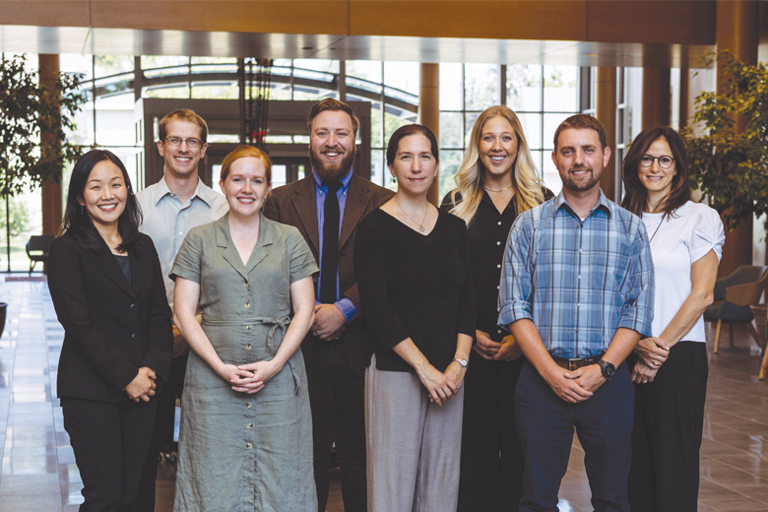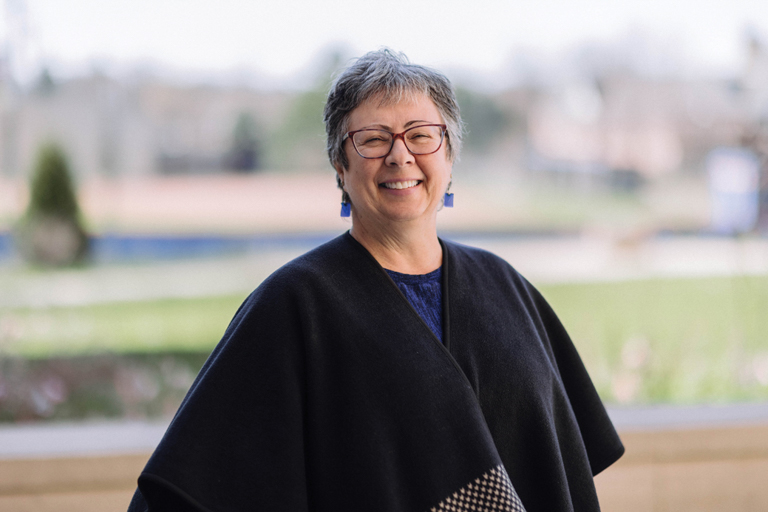Cherishing Christmas
Dr. Timothy Larsen presents a multifaceted study of the holiday in a new, edited volume.
Words: Eliana Chow ’21
Photos: Tony Hughes
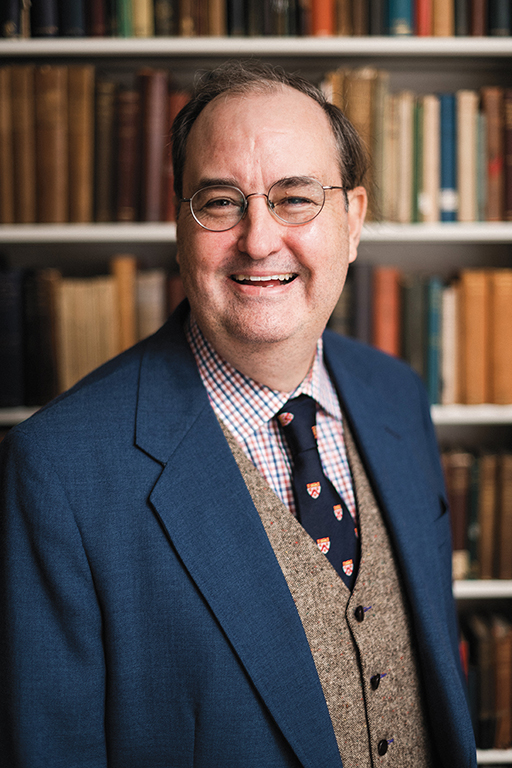
“I think of editing as throwing a dinner party,” said Dr. Timothy Larsen ’89, M.A. ’90, Carolyn and Fred McManis Professor of Christian Thought, about the recently published The Oxford Handbook of Christmas. “You’re trying to make the group as a whole interesting . . . You want to have different kinds of people involved in writing,” he added. “I tried to think of every subject that somebody would want to read about in association with Christmas and make sure there was a chapter on that.”
These scholars’ works compose a 44-chapter, 656-page volume, covering topics from the theology of the virgin birth to Christmas traditions around the world. Dr. Larsen didn’t want the volume to have a “debunking” tone, in which scholars simply tried to break down others’ arguments. Rather, he wanted to emphasize how different people find meaning in different things.
As such, Dr. Larsen hopes the book’s content will challenge readers to think more deeply about their beliefs and those of others, which is evident in the cover art. “I wanted it to be something that was original enough that it’s a bit disorienting,” he said. An unconventional nativity scene, the painting places Jesus’ birth in a metal trailer shack in the middle of a city construction site. It’s a jolt, being unfamiliar, yet still manages to retain an element of the devotional.
“Part of the reason why I did this book is because culture has felt more and more divisive and angry and ideological,” Dr. Larsen said. He wanted the volume to be a “bridge to culture,” because that’s how he sees Christmas. In the midst of controversy and change, “I think cherishing Christmas is a good way to go,” he said with a chuckle.
“Change is an inevitable and necessary part of life,” Dr. Larsen added. “And yet for a lot of people, maybe most people, change can be hard, and how we navigate that is with continuity. I think Christmas is deeply reassuring, because things that are the same come around, even in the midst of change and difference.”
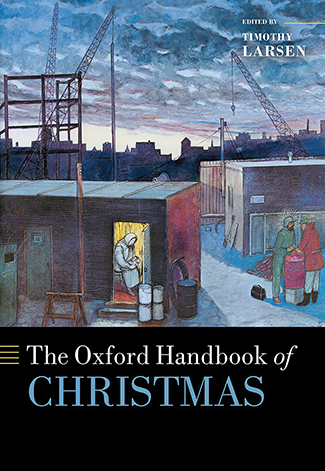
Yet, some traditions have been forgotten or neglected. Through part of his research, Dr. Larsen found that gift-giving in the name of St. Nicholas began in Christian churches. “A lot of Christians, particularly conservative evangelicals, are sometimes suspicious of Santa Claus, like he’s a rival to Jesus or secularizing the holiday,” Dr. Larsen said. “[But] Jesus told us that the best way to give is to give secretly . . . That way, you’re not trying to take credit. You’re not trying to show off. You’re just trying to help somebody.”
Welcoming New Faculty
Dr. Arielle Akines, Guest Instructor, Language Resource Center Director
Dr. Soh-Hyun Park Altino, Associate Professor of Music (Violin)
Captain Craig Billington, Assistant Professor of Military Science
Dr. Andrew Burlingame, Assistant Professor of Hebrew
Dr. Denise Daniels, Hudson T. Harrison Professor of Entrepreneurship
Dr. Olga Dietlin, Assistant Professor of Higher Education and Student Development, Program Director of HESD
Dr. Nancy Duarte-Gomez, Visiting Associate Lecturer in Psychology
Dr. Melissa Elliot, Assistant Professor of German and German Studies
Mr. Donté Ford, M.Div., M.M., M.S.M., Assistant Professor of Music and Associate Chaplain for Worship Arts
Dr. Jamie Goodwin, Assistant Professor of Humanitarian and Disaster Leadership
Ms. Lindsey Hankins M.A. ’09, Visiting Assistant Professor of Theology
Dr. Alex Haskins, Assistant Professor of Politics and International Relations
Dr. Peter Jantsch, Assistant Professor of Mathematics
Lieutenant Colonel Keith Katzenberger, Professor of Military Science
Dr. Steven L. Layne, Ed.D., Professor of Education
Ms. Kaye Patton, Assistant Professor of Art
Ms. Lilianna Quiroa-Crowell, Visiting Assistant Lecturer in Urban Studies and Anthropology
Dr. Allison Ruark, Assistant Professor of Applied Health Science
Dr. Yousaf Sadiq, Visiting Assistant Professor of Anthropology
Dr. Wendy R. Smith, Director of the Center for Family and Relational Health and Assistant Professor of Marriage and Family Therapy
Dr. Halie Wenhold, Visiting Assistant Professor of Communication
Dr. Sean L. Young, Associate Lecturer in Urban Studies and Faculty Director of Wheaton in Chicago
Wheaton in the News
“. . . voting can be an act of neighborly love. In a democratic republic, laws should be a manifestation of the will of the people. Therefore, the Christian who supports policies that do the most to assist in human flourishing is showing a deep concern for others. Voting is not a Christian requirement, but it can be a profoundly Christian act.”
Dr. Esau McCulley, Assistant Professor of New Testament, from “Black Christians have lived out their faith by fighting for voting access,” The Washington Post, August 20, 2020.
“One of the ways we partnered with other groups to secure corporate sponsorships that support our COVID-19 online summits was by finding creative ways to add value for our partners. For example, be willing to go that extra mile to find out why a particular sponsor may be interested in collaborating. Find creative ways to go above and beyond their expectations to help meet this need.”
Jamie Aten, Blanchard Chair of Humanitarian Disaster Leadership, Executive Director of Humanitarian Disaster Institute, and Associate Professor of Humanitarian Disaster Leadership, from “14 Effective Ways for Nonprofits to Approach Corporate Sponsorships,” Forbes, September 8, 2020.
“I don’t think parents can turn kids into our clones, and when it comes to nonessential matters, I try to hold very lightly any hope that they would perfectly agree with me. If they become adults who live with and for Jesus, my prayers would be answered, and I would do my very best not to obsess about whether they go to a different kind of church than I do or have different beliefs about what baptism means.”
Dr. Beth Felker Jones, Professor of Theology, from “Train Up a Teen: Young Evangelicals Mostly Keep Their Parents’ Faith,” Christianity Today, September 10, 2020.
